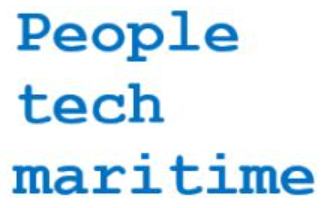If you think most work can be automated, perhaps it might help to think about the last experience you had with your phone company, I am guessing that your phone line (like mine) loses either internet or phone capability every couple of years and you have an excrutiating experience with your phone company’s automated system to fix it. (TalkTalk in my case).
The phone system is not automated itself, you are talking to human beings rather than computers, but the humans are reading data from a screen and typing data into a screen. Or certainly feel like they are.
The problem was something which occurred between my house and the telephone exchange, a few hundred metres away, and would have been solved most simply by me being able to speak to whoever last worked at the exchange, to inform them that (perhaps something like) when plugging a wire to connect up someone else’s line, they accidentally unplugged mine. I am sure managing a local phone system is difficult expert work. There are people who know how to manage it and it makes sense to speak to them directly.
What I had to instead took 6 phone calls (many involving long delays on hold). The first call was disconnected when the person on the other end of the line wanted me to plug in my land line to a special socket while on the phone to him on my mobile, and when I went to a corner of the house under the stairs there was no mobile reception. (Doesn’t this happen to most people). No call back, of course, but me dialing again, waiting on hold, to speak to another person.
This next person told me that the ‘automated test’ I had been asked to do on the phone company website had indicated a fault (although their automated system told me their test said it was fine). He agreed to call an engineer, which meant me calling another number to arrange.
I phoned another TalkTalk number who arranged a BT engineer to come on Monday. The BT engineer confused my wife by saying he needed to dig up the garden, sent me a text message the following day saying it needed someone with underground expertise to fix, while TalkTalk were sending me text messages saying they thought it was fixed.
I dialed the landline from my mobile and the phone disconnected, so I phoned TalkTalk, who insisted that the phone line was in fact fixed (despite a text message from my local engineering saying it wasn’t, and it wasn’t working). We worked out that the landline was actually diverting to my mobile, so when I called the landline from my mobile it would disconnect, and by cancelling the divert, the landline was now working.
This might have been obvious for a phone company which deals with these problems all the time, but of course the phone company staff were just reading what they had been told to say. “Is there anything else I can help you with?”
When I told the phone company person that their service had been dreadful, he thought I was complaining about the individuals I had spoken to. I wasn’t, of course, I was complaining about the stupid system set up for them to work to.
A further idiocy – after the first phone call I was asked to record a phrase on their automated system, which I could repeat and automatically login next time. The phrase was something like ‘how wonderful is TalkTalk’s automated security system’ or something. I was pretty grumpy and this may have come through in my voice.
But no, the system was actually not working. In the next phone call, I had to login in the usual way (first pet’s name), at the end of the phone call, asked to set my security phrase AGAIN. The third phone call I refused to do it.
What is the moral of this long story. TalkTalk has made a complicated attempt to automate a process which is not simple but could be handled much more simply and cheaply for all concerned by just letting me speak to someone who knows what they are doing as early as possible in the process. This is what happens when companies try to automate too much or obsess about automation. The message needs to be heard that automation is not always a good thing.
